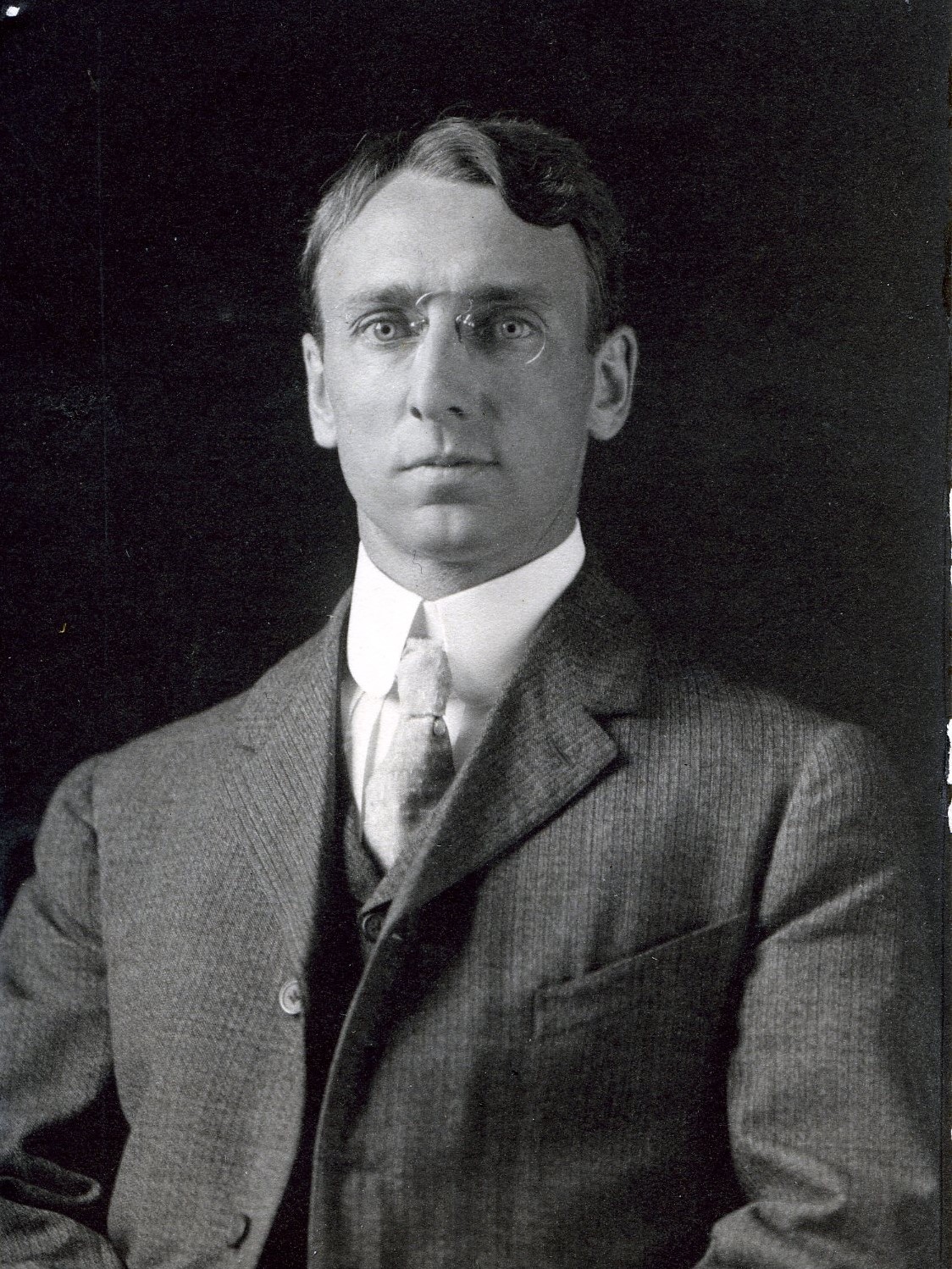Member Directory,
1847 - 1922
Charles H. Herty
Editor/Chemist
Centurion, 1920–1938
Charles Baskerville and Charles R. Miller
Milledgeville, Georgia
Savannah, Georgia
Age fifty-two
Milledgeville, Georgia

Archivist’s Notes
He founded the University of Georgia athletics department and in 1892 was its first varsity football coach.
Century Memorial
When the chemist, Charles Holmes Herty, was elected to the Century he had already saved the turpentine industry from slow, certain suicide. After a labor of ten years, culminating in January, 1938, he solved another and greater problem—how to make newsprint, the paper that newspapers devour—heretofore manufactured from Canadian and Scandinavian spruce—from Southern pine, of which there are unused forests covering millions of acres. The material aspect of this achievement is clear, but Dr. Herty’s comment was: “I do not think of this thing in terms of dollars and cents. The development of this industry is going to mean better food for those who are living on corn bread and only occasional meat, the elimination of one-room houses for families, better clothes for those who go in rags today. On the great coastal plain, a great mass of the population in the midst of the finest paper material have for generations endured the bitterest sort of poverty. Use of Southern pine will change this.”
Many Centurions knew of the vastly important problem upon which the devoted scientist was concentrated in the past decade, and perhaps valued all the more the companionship of the debonair billiard player, stepping lightly and gracefully around the tables in the Century billiard room. One of his cloud of friends, a novelist, describes Charles Herty in that pleasant crypt, which is given over to repartee, dufferism, and skill:
“It was always a joy to find him there and to sit down comfortably and watch his play. I knew the game well enough to appreciate his skill. In my long term of service in the billiard room I have seen there no player with a technique so admirable and reliable. Yet his personality was a big part of the pleasure of seeing his game. Often he would comment on his own play, especially if the plan of a shot had failed. Often he would stop to shout a hearty greeting to some friend entering the room. We who played with him or sat watching in the ‘gallery’ were in love with the jolly good nature of this man. He never failed to compliment the good play of an opponent. I think it is true that no man of my time was so loved by his fellow players of the Century.”
Geoffrey Parsons
1938 Century Memorials


